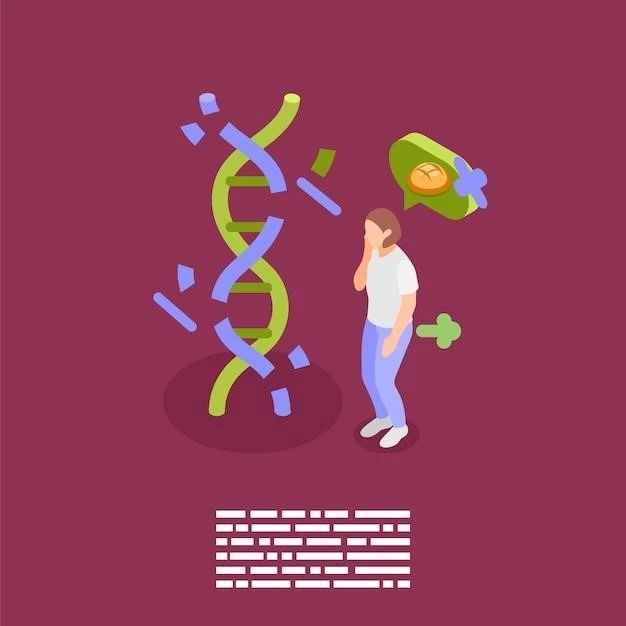Symptoms of Monosomy Distal 4q
Recognizing symptoms like developmental delays, intellectual disabilities, facial abnormalities, and growth delays is crucial for early diagnosis and treatment․
Identifying Signs of Monosomy Distal 4q
Look out for common signs such as heart defects, skeletal abnormalities, speech delays, and feeding difficulties․ Early recognition can lead to timely intervention and improved outcomes․ Consult a genetic specialist for thorough evaluation and guidance․
Medical Complications Associated with Monosomy Distal 4q
Individuals with Monosomy Distal 4q may experience various medical issues such as congenital heart defects, skeletal anomalies, kidney abnormalities, and increased infection susceptibility․ Regular monitoring by healthcare professionals is essential to manage these complications effectively․ Seek medical advice promptly to address any health concerns and ensure optimal quality of life․
Treatment Options for Chromosome 4 Disorders
Discuss treatment plans with a multidisciplinary team including geneticists, pediatricians, therapists, and specialists for comprehensive care․
Medical Interventions for Symptom Management
Medical interventions for symptom management in individuals with Chromosome 4 disorders may include therapies tailored to address developmental delays, speech difficulties, and cardiac issues․ Consult with healthcare providers to create a personalized treatment plan catered to the unique needs of the individual․ Early intervention and consistent monitoring are key in addressing symptoms effectively․
Genetic Counseling and Family Support
Genetic counseling is vital for families affected by Chromosome 4 disorders to understand the condition, inheritance risks, and available support․ Seek counseling services to navigate the emotional and practical challenges associated with genetic conditions․ Engage with support groups and connect with other families facing similar experiences for mutual understanding and strength․
Causes of Monosomy Distal 4q
Understand the genetic abnormalities on Chromosome 4 that lead to Monosomy Distal 4q, consult with genetic specialists for insights․
Understanding Genetic Abnormalities on Chromosome 4
Gain insights into the specific genetic abnormalities on Chromosome 4 that result in deletions, understand the impact on health and development․ Consult genetic counselors and specialists for detailed explanations and guidance on managing genetic disorders linked to Chromosome 4․
Diagnosis of Chromosome 4 Deletions
Seek diagnostic tests and procedures to confirm Chromosome 4 deletions, consult genetics experts for accurate evaluation and guidance․
Diagnostic Tests and Procedures
Diagnostic tests like chromosomal microarray analysis, fluorescence in situ hybridization (FISH), and genetic sequencing can help identify Chromosome 4 deletions․ Procedures such as amniocentesis or CVS may be used for prenatal diagnosis․ Consult with medical specialists to determine the most appropriate diagnostic approach based on individual needs and circumstances․
Management of Genetic Disorders on Chromosome 4
Adopt a multidisciplinary approach involving specialists, therapists, and caregivers to ensure comprehensive care and support for individuals with Chromosome 4 disorders․
Multidisciplinary Approach to Care
Coordinate care with a team of professionals including geneticists, pediatricians, therapists, educators, and social workers to address the complex needs of individuals with Chromosome 4 disorders․ This collaborative approach ensures holistic care, tailored interventions, and optimal quality of life for affected individuals․ Regular communication and coordination among team members are essential to provide comprehensive support and maximize outcomes․

Monosomy Distal 4q Research Updates
Stay informed on ongoing studies and breakthroughs in Monosomy Distal 4q research to access emerging treatments and advancements in managing the condition․
Ongoing Studies and Breakthroughs
Keep abreast of ongoing studies exploring new treatments, therapies, and genetic advancements related to Monosomy Distal 4q․ Stay connected with research institutions and medical professionals for the latest breakthroughs that may offer hope and improved outcomes for individuals with this condition․ Participation in clinical trials can also contribute to advancing knowledge and treatment options․
Prognosis of Chromosome 4 Abnormalities
Learn about the long-term outlook for individuals with Chromosome 4 deletions, consult healthcare providers for personalized care and management strategies․
Long-Term Outlook for Individuals with Chromosome 4 Deletions
Understanding the long-term implications of Chromosome 4 deletions can guide families in planning for ongoing care and support․ Collaborate with healthcare providers to create a customized management plan that addresses evolving needs throughout life․ Stay connected with specialists for regular assessments and adjustments to treatment approaches as needed․ Engage in support networks to provide emotional support and share experiences with others facing similar challenges․
Support Groups for Individuals with Chromosome 4 Deletions
Connect with community resources n support groups to share experiences, gain information n find emotional support for managing Chromosome 4 deletions․
Connecting with Community Resources
Explore available community resources, online forums, and local support groups to access educational materials, connect with families facing similar challenges, and find emotional support․ Collaborate with organizations specializing in genetic conditions to stay informed about events, workshops, and educational opportunities tailored to individuals with Chromosome 4 deletions․ Engaging with community resources can provide valuable insights, practical tips, and a sense of belonging for both individuals and families navigating the complexities of genetic disorders․
